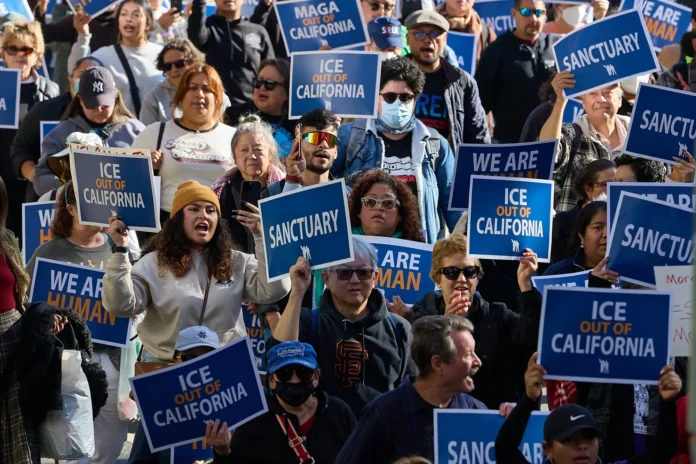A new economic study warns that the United States may face serious harm from a mass deportation plan. President Donald Trump has pledged to remove millions of unauthorized immigrants. However, experts say this could shrink the economy and reduce worker wages across multiple sectors. Rather than boosting growth, the policy might weaken overall productivity and national income.
Researchers found that deporting 10% of undocumented immigrants per year over four years would raise the federal deficit by $350 billion. It would also cut gross domestic product (GDP) by 1% and lower average worker pay. The study highlights that economic output drops when labor supply falls. Therefore, the mass deportation plan could reduce both employment and tax revenue.
If the policy continues for ten years, the effects would intensify. The federal deficit might grow by nearly $1 trillion, and GDP could decline by 3.3%. Meanwhile, average wages would fall by 1.7%. These numbers suggest the mass deportation plan may have long-term negative effects. The labor market and government budget could both suffer.
Some low-skilled authorized workers could see wage gains. Their pay may rise due to less competition in the labor force. But these gains may vanish if the policy reverses or labor shortages grow. Economists caution that short-term benefits would not offset broader economic damage.
High-skilled workers could face direct losses. Their productivity often depends on support roles filled by low-skilled labor. Without that help, high-skilled workers could lose up to $2,700 annually. Sectors such as tech, health, and finance would all feel the strain.
The agricultural sector would be hit especially hard. Over 40% of U.S. crop workers are unauthorized immigrants. Their removal would disrupt food supply chains and increase costs. This could result in higher prices for consumers and lower production for farms.
Although some officials support strict immigration enforcement, economists stress the need for a balanced approach. An aging population already strains the U.S. workforce. Immigration can fill labor gaps in healthcare, construction, and manufacturing. The mass deportation plan risks deepening those shortages.
Experts recommend long-term reform that supports legal migration and economic growth. A balanced system could protect jobs and expand productivity. Policymakers must consider these findings when shaping future immigration strategies.
For more business updates, visit DC Brief.


